Podcast TransitionsA year ago, five writers from across the U.S. got together on a whim with the crazy idea of starting an unscripted podcast on life and faith. It has been an exciting, challenging, beautiful year, allowing us to learn more about ourselves, each other, and so many people around the country journeying in faith in similar ways. While co-hosts Lori Harris and Kristi James are stepping away from their co-hosting duties (sniff, sniff) we are eager to see where God is leading them in their role in the Upside Down Kingdom. While they may be replacing their mics with their earbuds, they're eager to cheer on co-hosts Lindsy Wallace, Kayla Craig, and Shannon Evans as well. Here's a bit from Lori in her own words: Because of Thad's recent diagnosis and the impending family and ministry changes we anticipate coming in the next few months, I'm stepping away from the podcast in order to have more space to reconnect with my family, hear from God and listen to my soul. Here's a bit from Kristi in her own words: Saying yes to something always means saying no to something else. While I'm incredibly thankful to have been able to say yes to Upside Down Podcast for the last year or so, my time has come to an end as well. I've loved being a host of this show, and I look forward to continuing as a student. God has used and will continue to use the energy and courage of my co-hosts and the community surrounding this podcast to push me closer to the cross and I'm grateful. I'll be praying for continued courage and clarity for these women, and especially that they, too, will take advantage of opportunities to mention Justin Timberlake as often as possible in my absence. While we're not an interview-centered podcast, we are eager to bring new voices to the table to join us in unscripted conversations on life and faith. So, if you have someone who might be a good co-host for an episode, send them our way!
We have a lot of meaty topics we're eager to jump into in the new year, and you can expect fresh episodes twice a month. (Go subscribe on iTunes!) We're also featuring some like-minded small businesses with 7 days of giveaways on Instagram, so please join us over there!
4 Comments
Dear Listeners, we were SO encouraged by your humility in approaching gentrification and the thoughtful questions we received after this month’s interview with Leroy Barber!
We realized after the fact that we left you with little to no tangible "now what?" action steps. So sorry! I (Lindsy) thought it would be helpful to collect some of the questions/answers/next steps here on the blog. Thank you for engaging this complex topic with us with grace and humility! Q1: I totally get what you're saying about new sidewalks, green spaces, etc. being a signal from the government to investors, but what would you say to people who then respond "So you're saying no one should make any effort to make neighborhoods populated by socio-economically disadvantaged people any nicer? Are you saying it's best to just leave them full of trash with crappy schools?” A1: Uhm, no. One of the many problems and complicating factors with gentrification is it is often cloaked in goodness. Parks are good. Grocery stores are good. Sidewalks are good. These things are, in and of themselves, good for a neighborhood. The problem, as Leroy pointed out in our interview, is these things are not intended to better the life of the residents currently living there. They are a signal to developers to drop their dollars in that neighborhood and the government will have their back in the way of tax incentives, upzoning, etc. So the question isn’t “Shouldn’t we try to improve low-income communities?” because duh, we should. (Although there are issues with the word “we”, which I’ll get to later.) The questions we should be asking are, “What are we doing to protect those low-income residents from being displaced in the process of revialization? How are we ensuring they are not taken advantage of and pushed out by slumlords? Do our tenant laws need to be strengthened? Should our city impose rent caps? Are our city and county officials on the side of the people or the side of the developer? Are they planning to upzone the neighborhood? How will these improvements affect the most marginalized? Who are they for?” Unfortunately, the revitalization signaling that takes place from governments to developers is simply the reality. As Christians, our role is figuring out how to disrupt that reality so our brothers and sisters on the margins are ensured safe housing. Q2: I’ve moved into a neighborhood without doing much research and got here to realize it's being gentrified. As a white woman moving into what was a predominantly non-white neighborhood, I now feel guilty and like I'm feeding into the problem. For any other urban dwellers, what are some practical things the average Christ follower can do to avoid feeding into the gentrification process even after we’ve moved in? A2: This is a tough reality for you but not unredeemable. I truly think we must begin with learning the history of a place and listening to the people who have lived there for generations. We often skip over these steps because they do not feel “practical” and we want to “do something,” however, this is where we must begin. With that being said, here are a few suggestions for next steps if you live in a gentrifying neighborhood: If you bought your house and plan to do upgrades, do so in a way that honors the culture and architectural style of the neighborhood. Don’t change the face of the neighborhood by changing the face of your home. Buy local. Frequent the family owned taco truck, the guy selling BBQ out of the back of his pick-up, the barbershop, and the corner store. Put your gentry where your mouth is. Not only does this improve the local economy and directly impact your neighbors, it also creates organic interactions with the people you now live among. Relationships are the foundation and the catalyst for any good you will do in your place. If there's a local Business Improvement District (BID), insist they hire local employees. If your neighbors have a first language other than English, learn it. Engage in activities that create and value community. Potluck dinners, playing at the local park, waving hello and speaking someone else's first language are small but meaningful ways to resist the narrative that wealth and whiteness are better and preferred. Q3: I know gentrification is a complicated issue with many contributing factors, but I really want to do my part in helping break the oppressive cycle that is occurring. How do I (as a white woman) help fight against gentrification? A3: This is a difficult question to answer because our individual contexts will guide the good each of us can do in our places. As I said earlier, we must begin with learning the history of our place and listening to the people who live there. When we moved to Miami, we spent a year listening to and learning from our neighbors before we stepping out in any real “action”. It was difficult, but I believe the most respectful way of engaging a place and people. As majority culture people, it's all too easy for us to jump in with our own solutions and demand change, but we are not the experts, nor are we the answer. The experts are those living the injustices each day. They hold the solutions, and I believe they are the ones who will lead us all to a more liveable planet. A few things you can do no matter where you are:
Q4: Is gentrification ever not on purpose? A4: Yes, but no. Yes, there are well meaning people who move into a neighborhood because they can afford the rent and in no way intend to displace folks who have lived there for years. But, at some point we have to take an honest look at the effects of our choices and not just the intent of them. Our intent may be one thing, but we are still responsible for the effects of the choices we make and how they impact others. Gentrification: It's an often misunderstood and even a tad controversial topic, but nonetheless an incredibly important one for our times. In this new episode, we speak with Leroy Barber, one of the few experts on gentrification.
Leroy has dedicated nearly thirty years to eradicating poverty, confronting homelessness, restoring local neighborhoods, healing racism, and living what Dr. King called “the beloved community.” He is currently writing his fifth book entitled, The Injustice of Gentrification: Memories of Home, which is the topic of our conversation when he joined me in Miami last month. Kayla and Kristi joined for a post-interview conversation and we discuss the book How to Kill a City by Peter Moskowitz. We'd love to hear how this episode impacts you and what you know about the history of housing in your community. Please join us in the Upside Down Tribe on Facebook to join the discussion or on Instagram with the hashtag #upsidedowntribe. Lindsy 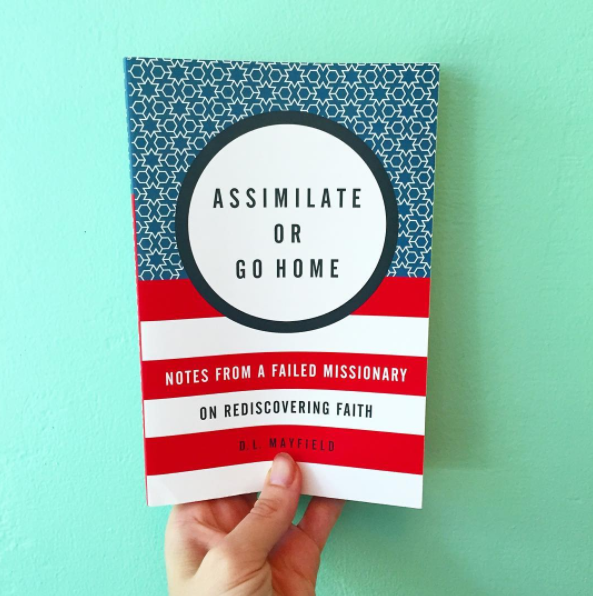 We're big fans of D.L. Mayfield's unique and relentless voice in the world of Christian writers, and are eager to celebrate the one year anniversary of the release of her book, Assimilate or Go Home: Notes from a Failed Missionary on Rediscovering Faith. She has graciously offered to give away THREE COPIES to you lovely readers, and you can look for the deets on that coming up on our Instagram feed! In the meantime, we know you'll gobble up this little interview we did with D.L. Each of the co-hosts asked one question, and she knocked 'em outta the park. It's the Upside Down kingdom indeed. Kristi: You consistently tackle pretty tough and controversial topics in your writing. What is it like to do that as a female Christian writer/author? Do you feel that you’re taken as seriously as your male counterparts? Are you more likely to be ignored or challenged? Any advice for other female Christian writers? I love this question and have never been asked it before! One interesting thing is that I write under my initials so sometimes conservative men assume I am a dude :) I think that early on I avoided the mostly “inspirational” women writing platforms and became more of a freelance writer with a very specific beat (refugees and/or inequality in America). I do think in general I have been taken seriously, but recently my husband told me he thinks I really undervalue myself by constantly referring to how emotional I am. He said that actually I am quite rational in my arguments, but that I have absorbed a narrative where since I am a woman I just write about my feelings and experiences. As he pointed out, however, I usually have a very concrete plan for trying to convert people to my point of view. I think it’s great to write for female audiences but it’s also great to branch out--this is true in every direction. I have really enjoyed not being pigeon-holed (I write for a veeeeery wide spectrum of places--from our local Alternative weekly to Christianity Today). Being all over the place is fun, but probably not very good for branding or platform or book sales. For female Christian writers I would say read and pitch widely, and we will all be better for it. Lori: You and your husband Krispin lead lives that demand a lot of you- emotionally, mentally, and physically. How do you do “soul care”? How do you care for yourselves and your health while living among the demographic that you love? Oh I wish I had a good answer. I am pretty good at the little bits of soul-care: taking baths, reading good books, eating both healthy and unhealthy foods (they can both help me!). I exercise, and am trying to be more disciplined in reading Scripture in the morning writing in my journal (Lord, I hope no one ever reads it . . .) Honestly it is hard, because my kids are 2 and 6 and both very demanding and I am the primary care-giver. It can often feel like everyone I know just needs so much from me. But, my husband is a therapist and has a very different approach to life so he helps me slow down, listens to me when I despair, and reminds me I am not God. We also have a weekly gathering of people who live/work in similar communities and we do a one-hour liturgical prayer time where we bring our neighbors and our prayer requests to God and leave our burdens at God’s feet. It has been incredibly helpful for me. I need to know others are experiencing what I am, that others are being overwhelmed by the inequalities of the world--and then I need to lay it down. Lindsy: Pouring a decade of your life into solidarity with refugees has given you a lot of insight into the relationship the Church has with non-Christians, and specifically the marginalized. How do you hold the balance between calling the Church to something more and not losing hope? What does church look like for your family now? Is your local church a place where your refugee friends could feel welcomed and safe? Well this is the question, isn’t it? We found God in the places the church told us God was absent. Now what to do? I think I have really shifted my writing in the past few years to try and communicate with Christians on all they are missing out as they try and establish safe and secure and theologically orthodox institutions. I took my missionary zeal that was stoked in the church and have turned it back on them! I think in our current political climate my hope has been tested more than ever. The ugly seams of white supremacy are showing up all over the conservative evangelical community. It’s been rough. On one hand I am losing faith in the people who taught me to care about morality and fidelity and charity and who vote for the opposite--on the other hand I live surrounded by people whose lives are made miserable due to current policies (the travel ban, for instance, or the increasing fear and hate-filled rhetoric surrounding undocumented immigrants). So in order to process my grief, I have to make a commitment to keep trying to reach out and invite people into the way of Jesus and his kingdom. That’s all I got. I long for the day when something is rebirthed from the ashes of the evangelical church. I don’t think people even realize how much of our witness has been tarnished due to the last election. On a happier note, we attend an awesome church in Portland that believes in Jesus and the Bible and the holy spirit and in pursuing justice hardcore. Most of the staff are people of color, and it has been so good to be under their leadership in these trying times. I also read more Christians of color than ever and their lives and theologies breath life into my faith. Kayla: Do your neighbors know you wrote a book about being a Christian missionary? What do they think about it? Does your public writing ever make those community relationships feel awkward? The main people in my book do know, and they don’t really care. I sweated bullets, however, because it was clear to me when I asked for permission they didn’t understand the full nature of what it means to publish a book. Now, I can have conversations with the two main girls in my book, and they are so frank and awesome. I think the younger sister (I call her Khadija in the book) will someday write her own book, and it will be amazing. I carefully edited what I wrote about since most of the people I know do not want to be visible or draw attention to themselves. I try and be very careful, and in my present day writing I don’t use names or identifying characteristics. Most of my friends currently are recently arrived refugees and I tell them I write sometimes but they just know me as a mom and neighbor and ESOL teacher. In my dreams I think about what it will be like if people get safe and stable housing and good jobs--I would love to collaborate on a writing project. In general, it hasn’t been too awkward, especially since I try and stay in my lane and only write about what I observe, and I don’t try and be an expert on the refugee process or what life is like here. Maybe after a lot of time has passed I will be able to share more specific and concrete stories (which I think are powerful, but they are fraught with ethical concerns). The more people get adept at English it will be interesting to see what they think of my writing! I no longer feel ashamed of it however--part of being alive in our world is knowing anyone and everyone can read your work, so you best have tried hard to be as ethical as you can. Which means most of all the very best stories will never be shared, and I am OK with that. Shannon: I love that a major theme of your book is discovering the love of Christ for you personally, not His love for your ability to achieve, save souls, or produce results. One of my favorite lines is when you say, “this is the story of how I failed miserably, and what a good thing that turned out to be”. What is it about brokenness or “failure” that has wrought so much change in your spiritual life? Failure is essential if you grew up like me entrenched in white supremacy and a colonial idea of missions/ministry. It taught me that I am not inherently right or superior or good at anything. It taught me to allow my neighbors and friends to be my teachers, to disciple me in the ways of Jesus, actually. Failure brings you to such a place of need from God, when I thought God needed me to save the world. I still need to remind me of this, and my life (which is still so full of “failures” if I choose to view them like that) is very helpful in this regard. Jesus can’t heal me if I think I am well, that I have it all figured out, that I can muscle my way into righting all the wrongs of the world. Jesus can only heal me if I admit I am sick, which I am learning to do so slowly. Many, many thanks to D.L. Mayfield for this thoughtful interview, and don't forget to check in on Instagram for a chance to win one of three copies of her book! (And psssst in case you don't win: it's on sale over at Amazon for the whole month of July- the Kindle edition is only 2 bucks!)
Hi Friends! You might've noticed, a new episode dropped last week! Those of you who took our listener survey earlier this year said you weren't really into checking the blog for show notes... BUT several of you have reached out asking for show notes for this episode so we are at your service.
Lori, Shannon and I worked from Dean Brackley's definition of downward mobility: "The solution to our global crisis is not that the poor become rich, which is neither feasible nor desirable, but that the rich join with the poor. The only solution is communities of equals, resisting pyramids of inequality. While some economic differences are legitimate, discrimination and misery are not. In communities of equals, personal talents, instead of advancing some at others' expense, are stewarded for the benefit of all." HashtagthoseJesuits. Often, we think of living a life of poverty when using the term "downward mobility", but Henri Nouwen in The Selfless Way of Christ points out three great temptations of upward mobility, not one of them being exaclty and only physical wealth: "Three temptations by which we are confronted again and again are the temptation to be relevant, the temptation to be spectacular, and the temptation to be powerful." Do you feel the pull of those temptations? Had you heard the term downward mobility before? Are you consciously making choices for the benefit of common good and our fellow humans? What does this look like in your actual life? Join us in our Facebook group to continue the conversation or here in the comments! BOOK talked about in this episode: Not All of Us Are Saints *Affiliate links are used in this post. 'Cause your girls could use a few good mics. Upside Down Book ClubSummer is here! And we have a special book club for ya! But before we share, we want to pop in and share the state of the podcast. We've switched to a lighter recording schedule for summer, but we can't fully stay away! We'll be releasing new episodes once a month for June - August, but we'll kick back with more regular episodes in the fall. Get those earbuds ready: We'll release a fresh episode Tuesday, June 13! (And it's about social media! And we recorded it live! Make sure you subscribe to us on iTunes so you don't miss it!) Until then: We've gathered 19 reads we haven't been able to put down lately, so go 'head and put them on your summer reading list, too! This mix of riveting novels, non-fiction faves, and spiritual page-turners will give you something to talk about. Let us know what you're reading with #upsidedownbookclub. FICTION PICKS
NON-FICTION PICKS
PARENTING PICKS
FAITH & SPIRITUALITY PICKS
BONUS PICKS
Affiliate links used when applicable. Thanks for supporting the hosts of Upside Down Podcast! Keep the Conversation GoingLinks Mentioned in This EpisodeKeep the Conversation GoingKeep the conversation going!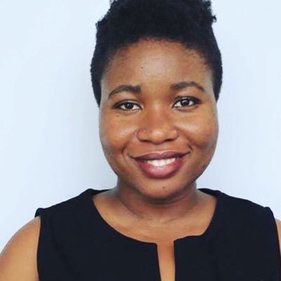
For Episode 19, we're thrilled to have a special guest with us: Salem Afangideh, a friend of the podcast who is bold and brave woman of God, an immigration attorney, and an immigrant herself.
She currently loves in Montgomery, Alabama, and moved from Nigeria to Alabama when she was 14 years old. In the less than eight years since she arrived in Alabama, Salem graduated early from high school, received a law degree when she was 20 years old, and worked in Washington, D.C. to help victims of human trafficking and domestic violence. Wow. In November, she joined forces with other like-minded attorneys to form Afangideh Global, which focuses largely on immigration law.
Some take-away points + quotes from Salem:
Further Reading
We sincerely hope and pray that this episode is helpful, and particularly so for those of you who are going through your own season of suffering as you listen. Know that you are not alone; the Body of Christ walks beside you and Jesus Himself knows your pain intimately and never forsakes you.
Some of the resources we mention in this episode are: Scripture: Hebrews 4:15 John 11 Isaiah 53:1-6 Isaiah 42:3 James 1:2-4 Romans 5:3-5 New York Times piece: https://mobile.nytimes.com/2017/03/25/opinion/sunday/after-great-pain-where-is-god.html?smid=fb-share&referer=http://m.facebook.com Other things that come to mind: http://www.relevantmagazine.com/god/practical-faith/how-suffering-saved-my-faith written by co-host Shannon about her own experience discovering a theology of suffering http://velamag.com/superbabies-dont-cry/ "We want a SuperRace because we want to eradicate absolutely everything that terrifies us. We want SuperHumans so we can transcend that thing we are: human. But a SuperHuman would lack that crack in everything through which, as Leonard Cohen sang, the light gets in. There’s something in our suffering that we need. We’ve known this for millennia, and we make it clear in the stories we keep telling. The Buddha gave up his palace and meditated beneath a tree for a week. Jesus of Nazareth said yes to a cross. Our ache is our unfortunate, undeniable doorway. Give me your tired, your poor, your huddled masses, says the copper lady with the torch. When we walk into our pain, we sometimes find ourselves on the other side, freed of what we once thought we needed to feel free." Wishing you a Holy Week full of intimacy with Christ and an Easter full of hope, Shannon |
SHOW NOTESCheck out links & details to what we've talked about in every episode! ARCHIVES
September 2017
CATEGORIES |
About |
Join Us |
© COPYRIGHT 2015. ALL RIGHTS RESERVED.
|

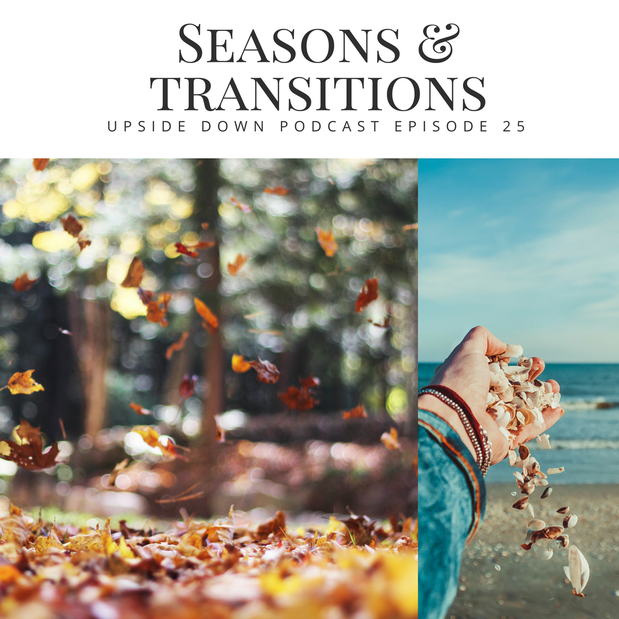

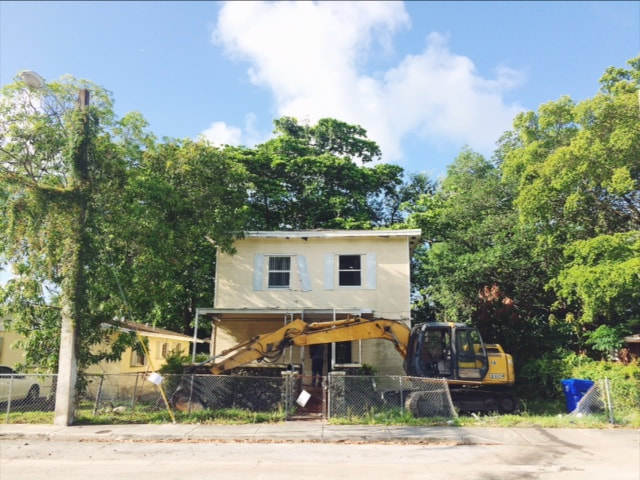
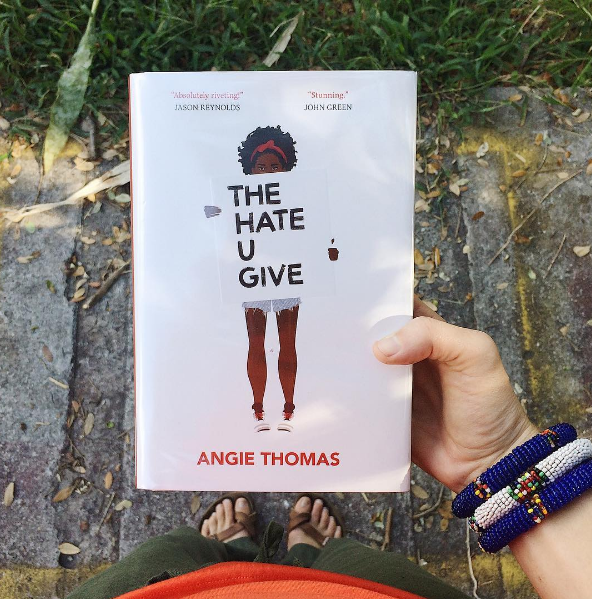
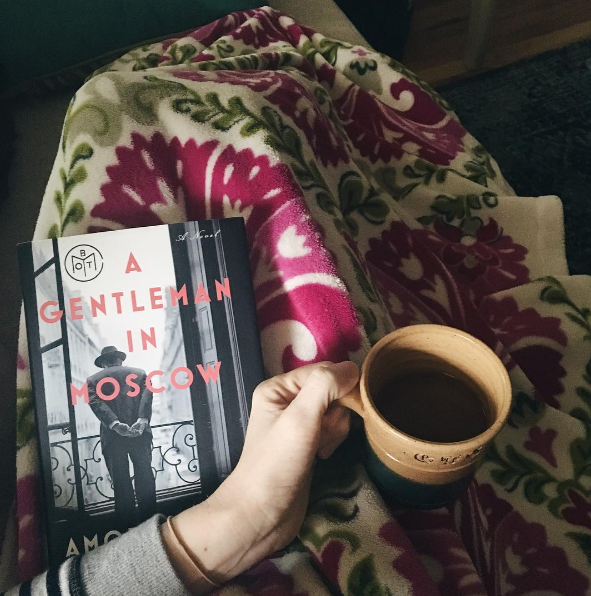
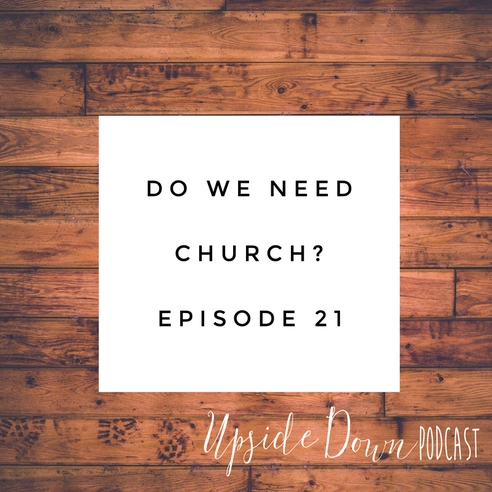
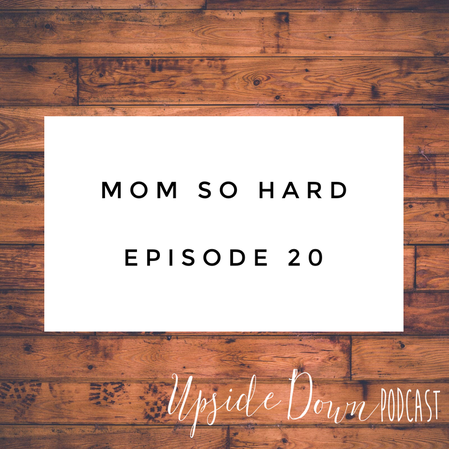

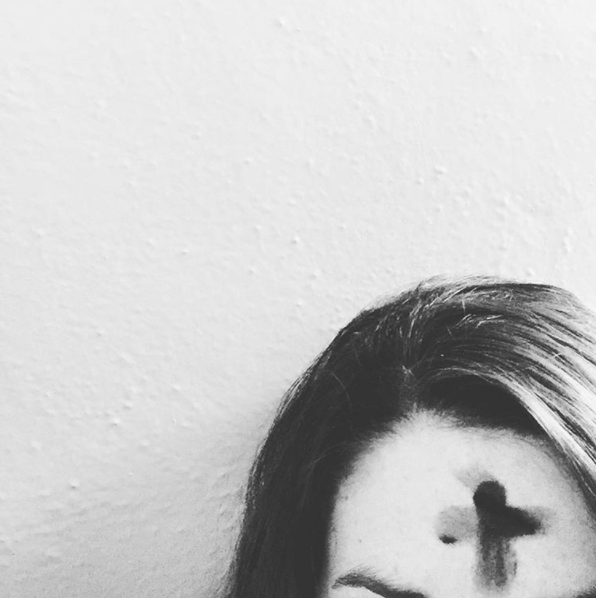

 RSS Feed
RSS Feed